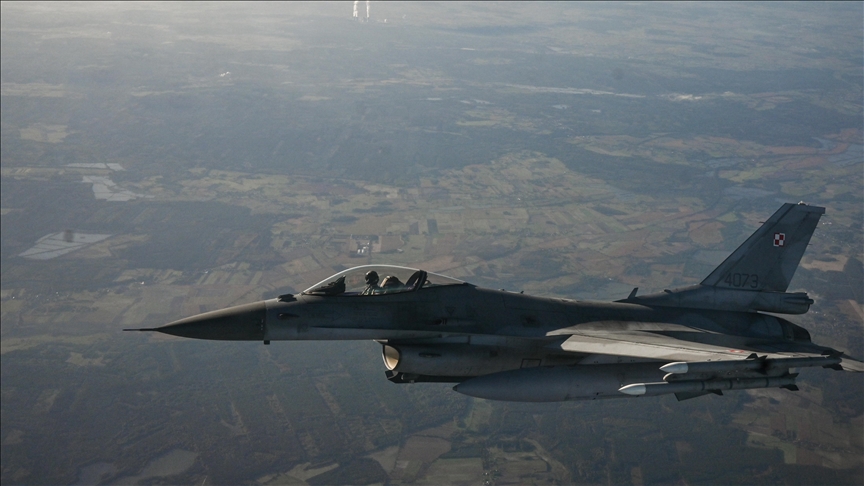NATO chief says delivery of F-16s to Ukraine 'remains to be decided'
Training Ukrainian pilots demonstrates alliance has made 'important steps' in strengthening, stepping up support, says Jens Stoltenberg

GENEVA
The delivery of F-16 fighter jets to Ukraine "remains to be decided," NATO Secretary-General Jens Stoltenberg said Wednesday at a joint news conference with Latvian Prime Minister Krisjanis Kariņs.
Answering question on whether NATO should speed up the decision, he said the alliance already made "important steps" with beginning the training of Ukrainian pilots.
"I think it (the training of pilots) demonstrates, actually, that over the last months, we have really made important steps in strengthening and stepping up our support," he said.
Noting that NATO member states already delevired a lot of heavy armour, battle tanks, including Leopards, Abrams and the Challenges, he said those have been followed by the UK's delivery of advanced long-range cruise missiles and the announcement that several allies are going to start training Ukrainian pilots.
"Of course, that is only meaningful because at some stage then we have the option to also deliver planes. But when that will happen and how and so on, that remains to be decided," he said.
"The wise thing to do is to do this step-wise, and to start the training," he said. "And then, depending on how the war evolves, and how the situation on the ground evolves, then the final decisions will be made on the issue of delivering planes."
Underlining that delivering planes is a long-term commitment, the NATO chief said it is "important to ensure that Ukraine has the capabilities, the military strength, to deter against further aggression," when the war ends.
"We need to prevent history from repeating itself, we need to prevent President Putin from being able to continue to chip away at European security," he warned. "To strengthen the Ukrainian Armed Forces – including their air forces – will be an important part of that."
Then fourth-generation aircraft that meet NATO standards can be a part of that, he said.
"When this will happen, it’s too early to say. If it happens in the war, it will help them in their war efforts. If it happens later, depending, of course, on when the war ends, it will be useful regardless," he said.








